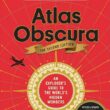Juliet Riddell, Head of New Formats at the Financial Times, makes films designed to ‘provoke conversations’ about complex subjects for audiences beyond the business and finance community. “The FT isn’t just people talking about the markets,” she says. “There’s something enticing about confronting people’s expectations of what’s understood to be a very traditional legacy news organisation.”
When I spoke with Juliet for The Publisher Podcast, she was quick to note that her ‘new formats’ title isn’t about introducing any of the host of content innovations possible for modern publishers. Her job is to find new ways to tell stories using video.
Juliet began her career in television, making Come Dine With Me – before moving on to documentaries. She has been at the FT for almost eight years, making 15 films in the FT’s Standpoint series, covering issues around democracy, gender equality, climate change and most recently, AI and dementia.
Recall Me, Maybe is a 13-minute film drama written by Brit comedian David Baddiel and starring Stephen Fry and Game of Thrones’ Jimmy Whelan. In the film Stephen Fry plays an older gentleman suffering from dementia. He goes through AI therapy to recover his memories, but the AI surfaces something in his past that his daughter, Gemma Whelan, is horrified by. And the real story is, did that actually happen?
“The clear takeaway from Recall Me, Maybe is that AI hallucinates, explains Juliet. “My parents, who are educated, middle class people, didn’t know that. There’ve been plenty of brilliant FT articles about chatGPT hallucinating, but sometimes you can read a thing and it sort of goes over your head.”
The power of the film is that it makes the issue of AI hallucination incredibly personal, with potentially false memories threatening the relationship between an elderly father and his daughter. “I think this type of storytelling can have an educational role that other forms of journalism sometimes can’t,” Juliet says.
The fact that Recall Me, Maybe is fiction doesn’t mean that it is separate from the FT’s journalism. The newspaper’s AI editor, Innovation editor and Science editor all collaborated on the piece. “We have these fantastic workshops,” says Juliet, explaining how the team collaborates with writers like Baddiell. “They come into the FT building, normally, and we sit round and really thrash out what the news is, what the ideas are that are hard to land.”
The film also deals with issues relevant to the FT’s place in the world of modern media. The placement of a Heinz ketchup bottle on a kitchen table raises the question of product placement and advertising in AI. The husband in the piece pointedly asks ‘Who owns it?’ when speaking about the AI’s store of his father-in-law’s memories, echoing everyday media conversations about copyright and content theft.
Big issues, new perspectives
Juliet has heard the film compared to the TV series Black Mirror, but she doesn’t see it as that dystopic. “I hope it’s also raising questions about the fact that AI may well be a hugely positive contribution to health and medicine,” she says. “I’ve been doing some panels with David Baddiel and he says that if this service was available for his dad, who had dementia, he would have used it.”
Juliet says she is in the unique position of being able to experiment with how the FT tells news stories. She has made dramas, which she describes as ‘the more traditional end’ of filmmaking. “But I’ve also done un-scripted dance shorts, which really is pushing at the boundaries of journalism, and a music video about post-Brexit immigration with musician Nitin Sawney in a collaboration with The Royal Albert Hall, which uses some of our amazing data journalism.”
Her role is to experiment with filmmaking, but her work is always rooted in news. “All the films are trying to connect an audience with something that’s happening now and that we feel we need to communicate now.”
In front of the paywall on FT.com and on YouTube, the FT is looking for the widest possible audience. High-profile collaborators, including acclaimed author Margaret Atwood, boost the attention that the films receive. Juliet says the value is in the hype and excitement that ‘big-hitters’ bring. “It helps with reach because you’re reaching their audiences.”
While the FT sees experimental journalism as a way to reach new audiences, it is also looking for new ways to explain some of the biggest issues of our time. Describing Margaret Atwood’s contribution to Standpoint’s 2024’s Democracy series as ‘an explainer’, Juliet also hopes the animated video elevates a subject that could be considered ‘boring’.
“I think that that piece should be played in schools,” she says. “I think it’s a really helpful exploration of democracy, and a good example of how the visuals, the music, the writing, all help us understand things.”
Juliet also sees the strength of her work in the fact that it creates opportunities beyond sought after video views. The democracy series became a book that was launched at the Hay Literary Festival with a session with FT editor Roula Khalaf. “The tent was packed and we had other writers from the films on stage with her,” says Juliet.
The British Film Institute has invited Juliet to discuss Recall Me, Maybe at its AI Creative Summit and the film will be shown at the FT’s own AI conference. “That’s a great opportunity,” she says. “Because then I’m in the room with people that are from the technology side of things, they also might be policy makers. It’s the unique spot the FT has, reaching the CEOs as well as us normal folk.
“I guess it’s not that hard to see why the FT would do that, it’s bringing the FT brand to people in all sorts of different ways.”
Listen to the full conversation with Juliet Riddell in this week’s episode of The Publisher Podcast above, or wherever you find podcasts.



